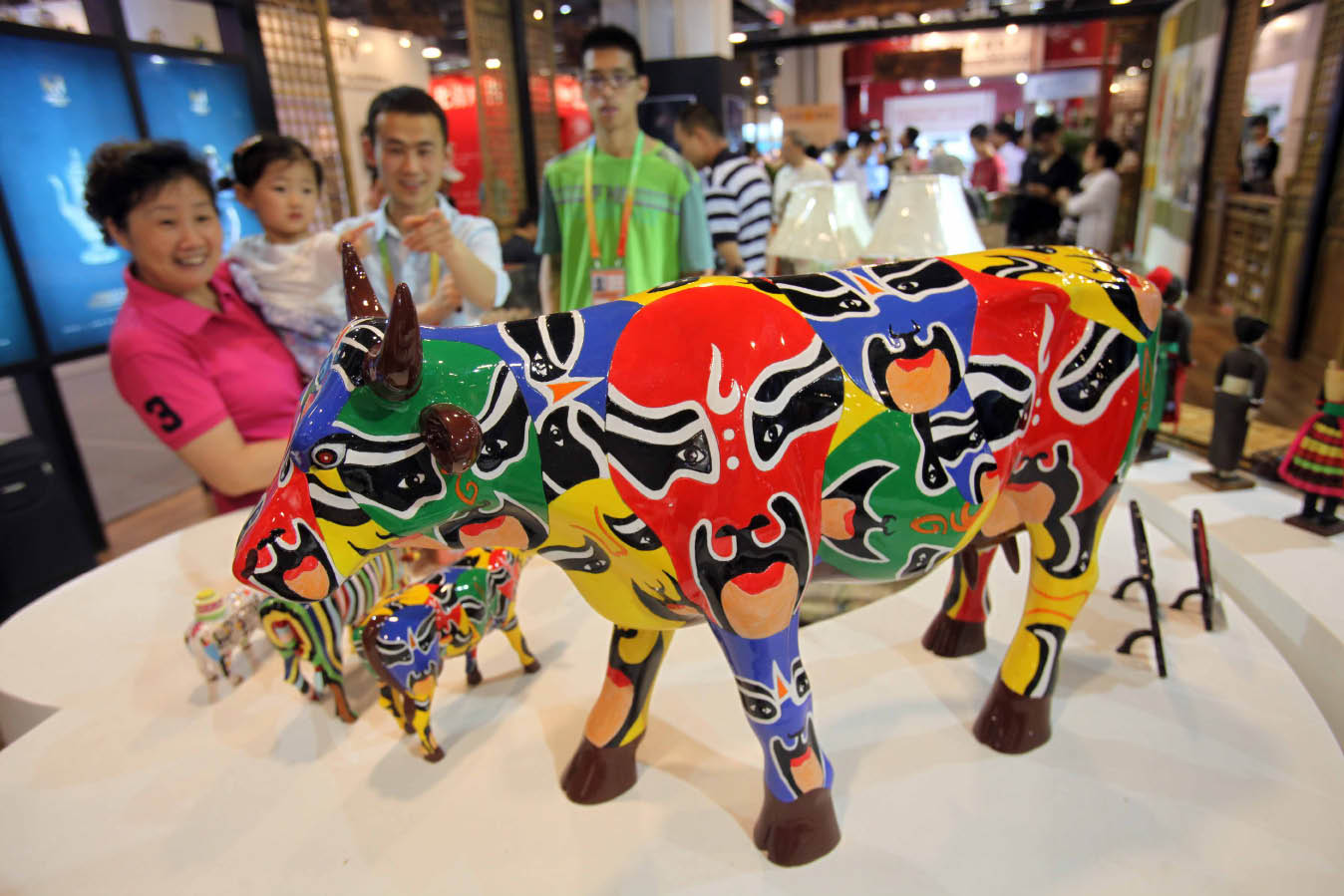Tian'anmen Rostrum Open to the Public
Starting on January 1, 1988, the Tian'anmen Rostrum, a spot previously reserved for state leaders, was opened to sightseers, with an admission fee of RMB 10 for Chinese and RMB 30 for foreigners. "This testified that the mystery cloaking the system of power had been lifting since the commencement of economic reforms in 1978," said Li Xianting, the godfather of contemporary Chinese art. As a result, the public awe of authority changed, giving way to the voice of those who had been silenced.
Hoodlum Literature
In 1988 Wang Shuo's four novels were made into films. The Beijing-based young writer had a controversial reputation for his stories of the capital's underclass, written in cynical satirical language. His trademark lines include "Who do you think a rogue like me is afraid of?" "Never treat me like a human," and "I do what I want, and die the next moment." This was a huge shock to China's literature, which had for so long been exclusively about heroism and social responsibility. Wang was scorned and scolded by many senior writers, but appealed to a wide range of people across the nation. One of them was Wang Meng, former minister of culture.
"We probably never thought that there could be writers and writings of other sorts. This literature doesn't necessarily raise a question and then answer it. The lead characters can be somebody other than the working class, the cadres, the intellectuals, revolutionaries or counter-revolutionaries. They don't even have to be seen as historical or social beings…I used to refer to such writings as weightless literature…Though putting on an air of devil-may-care, the playboys in Wang Shuo's novels always run into something heavy in their life that they can in no way make light of…Wang's novels are in fact howls of youth against misunderstanding, harassment and belittling."
1989
Contemporary Art Exhibition
An exhibition of China's contemporary art opened in the National Art Museum of China in Beijing in February 1989. The works, by 186 artists from all over the nation and of varied categories, included installation art and performance art, and jolted the conventional conception of art among Chinese people. Wu Shanzhuan sold lobsters in the museum, mocking its image as an official institution. Li Shan washed feet in a basin painted with a portrait of American President Ronald Reagan. Wang Deren sprinkled condoms in front of every exhibit on every floor. Zhang Nian sat on the ground, encircled by 18 eggs and cloaked in white paper reading, "Hatching in progress, no theories please for the sake of the next generation."
The biggest news at the show was the two gun shots Xiao Lu fired at her installation Dialogue. The incident drew a crowd of policemen and ended in a four-day closure of the museum. But as art critic Li Xianting stated: "The two gun shots pushed forward the limits for China's modern art that had bourgeoned since 1985, and limits on the scope of new ideas and new styles avant-garde artists were trying to force on the public. The exhibition itself embodies a modernist spark, and is a unique phenomenon of China's contemporary art."
1990
Stock Speculation Fever
When Yang Huaiding became a millionaire, the highest face value of a Renminbi banknote was 10 yuan, and the total weight of banknotes valued at RMB 1 million was 60 kilos. He was too tired to count the banknotes, so he bought a bill counter. Yang Huaiding is famed as the Chinese stock market's "godfather," and people often neglect his given name and refer to him instead as "Millionaire Yang." He became a millionaire in a single year by dealing in bonds. Prior to that he was a wage earner, with a monthly salary of just RMB 53. Yang recalls how nervous he was at the time, worrying that he might be labeled a "speculator" or a "profiteer." In the eyes of the Chinese, earning money through dealing in stocks and securities was tantamount to "reaping the fruits of other people's toil," or "speculating." However, following the establishment of China's first stock exchange in 1990, and the establishment of the Huaxia, Guotai and Nanfang securities companies in 1992, the Chinese people found a new way to get rich – stocks. The miracle of getting rich overnight, the way Yang Huaiding did, has engendered speculation fever nationwide.
In August 2008, the stock accounts of the Shanghai and Shenzhen Stock Exchange totaled 119.5454 million, of which 100.1267 million were active accounts, breaking the barrier of 100 million for the first time in history. Yang Huaiding, in his late 50s, has experienced four bull and bear markets. He spends eight hours a day on stocks, and feels happy in a way he never felt when he first became a millionaire, since to him stocks are no longer a way of making money, but simply a hobby. He has developed stock analyzing software named after himself, and goes on lecture tours. As to the stock speculation fever, he believes it is a law of the stock market that the majority will lose money.
Mao Zedong Fever
While people are enthusiastic about stock speculation, in the ideological field there is a corresponding Mao Zedong fever. Many drivers like to hang an image of Mao Zedong in their vehicles, the way Buddhists hang image of the Buddha to "exorcise evil spirits." Gao Hua, a historian, holds that Mao Zedong fever occurs under conditions of accelerated social differentiation and polarization between rich and poor. Some people regard Mao Zedong as the embodiment of social justice.

